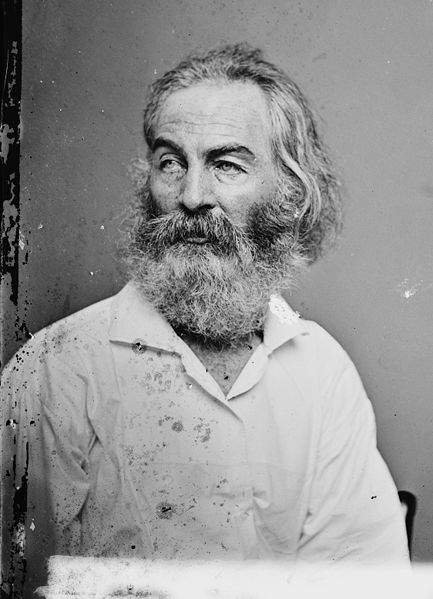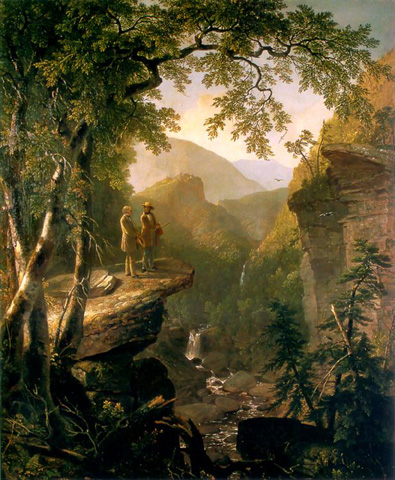Across the Atlantic in America at roughly the same time, Whitman publishes his great book of the period, first published in 1855, entitled Leaves of Grass that celebrates the divine in the human. As this book would also become part of the foundation of what would be modern poetry, it's worth noting an excerpt from the opening poem later to be entitled "Song of Myself":
A morning-glory at my window satisfies me more than the metaphysics of books.Note that while the poet is celebrating a real flower, one senses that -- true to the title -- it's more about himself. But while Whitman's celebrating the real in America, back in France, about a decade later, the evolution of poetry is moving from the real to the ideal. The poet Stephen Mallarme's philosphy of his poetry is crystalized in his remark, "l'absente de tous bouquets", roughly translated as "the ideal flower that is absent from all real bouquets."
So while Whitman's extolling flowers above the metphysics of books, the reader will require a book of metaphysics to appreciate this "ideal flower" as described by Mallarme; case in point, the blog of June 9 where I cite the French philospher Jean-Paul Sartre's book Mallarme, or the Poet of Nothingness.
Here I'll conclude with a poetic metaphor: if poetry is a flower, to what extent, for the sake of art, have we poisoned the surrounding bed so that no weeds may appear and then unnaturally altered the flower to such an extent that we need a professor to tell us that it’s a flower, though it neither looks like a flower nor smells like a flower. My prediction is that some of the weeds have become immune to the poison and are rising up in an attempt to save the flower, in whatever form it may take, from the real to the ideal.














No comments:
Post a Comment